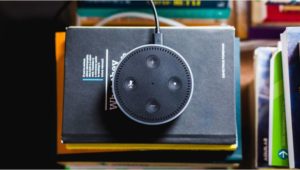
EC-TEL domains addressed:
Inquiry-based learning, Problem- and project-based learning, Interactive systems, Personalisation, User modelling, Adaptation, Recommender systems for TEL, Natural language processing and latent semantic analysis, Self-regulated and self-directed learning, Schools and universities of the future
Workshop theme:
The communication behaviour of us humans has changed greatly in recent years. The ubiquitous presence of digital media, networked devices and technology has created new types of conversations, discussions and information sharing. Digital platforms are also becoming increasingly important in educational practice. However, the resulting possibilities for designing lessons and supporting learners have not yet been fully exploited. Especially in the individual support of learners, current forms of education often reach the limits of teaching resources. A promising technology in this respect are chatbots. They conduct conversations automatically in human language and can be addressed by learners in case of problems or comprehension questions. By reproducing information from predefined knowledge structures, chatbots enable the development of digital educational assistants that respond individually to learner inputs. This workshop brings together scientific findings with pedagogical and psychological challenges. The participants are actively involved in the conception and implementation of an educational chatbot design. The jointly developed findings will be incorporated into a guideline for the development of pedagogical chatbots. The target group of this workshop are scientists and practitioners from the fields of computer science, pedagogy and psychology.
Workshop Outline:
- Introduction into Chatbots and Digital Assistants in Education
- Identification of important dimensions for the guideline
- Group work on these dimensions
- Pooling of knowledge
Workshop goals:
The main objective of this workshop is to transform the knowledge and perspectives of different experts into a guideline for further chatbots developments.
Workshop format:
The group is first introduced to the topic of educational chatting in general. In alternating phases, group work and class activities takes place, which should lead to the identification of challenges and limits of educational chatbots. Finally, the conceptual implementation of an exemplary chatbot will provide further experience, which will feed into the Workshop Chatbot Directive.
Organizers:
Sebastian Wollny, Daniel Biedermann, Jan Schneider
Literature:
Wollny, S., Schneider, J., Rittberger, M. & Drachsler, H. (2019). “Am I planning smart? – Analysing student goals”. In: Proceedings of International Conference on Learning Analytics and Knowledge, Arizona, US, March 7–9, 2019 (LAK ’19).
Winkler, Rainer & Söllner, Matthias (2018). “Unleashing the Potential of Chatbots in Education: A State-Of-The-Art Analysis”. In: Academy of Management Annual Meeting (AOM). – Chicago, USA.
Kerlyl, A., Hall, P., & Bull, S. (2006, December). “Bringing chatbots into education: Towards natural language negotiation of open learner models”. In: International Conference on Innovative Techniques and Applications of Artificial Intelligence (pp. 179-192). Springer, London.
